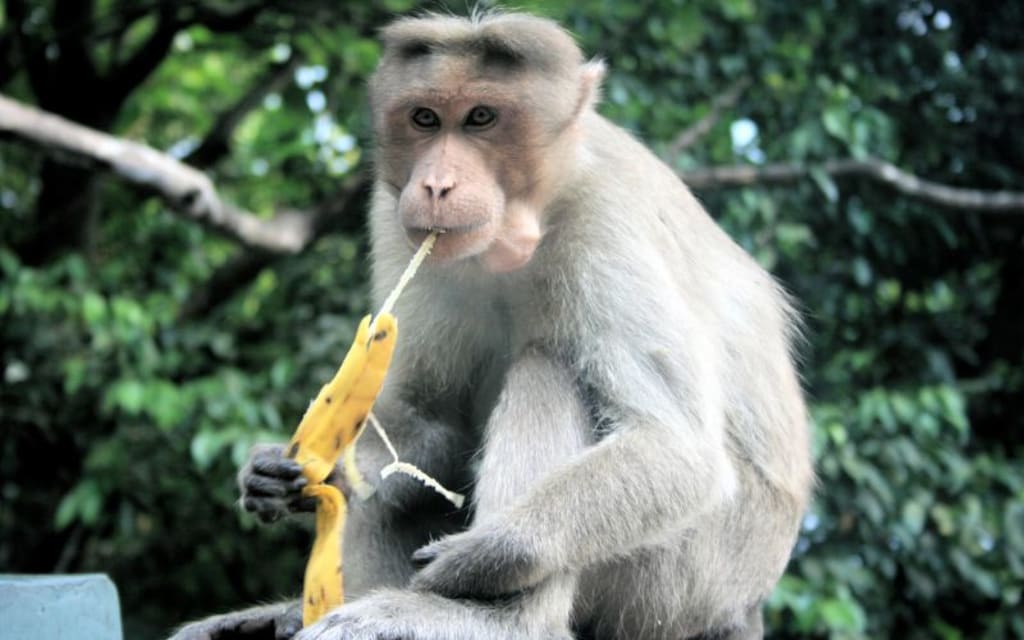How Many Bananas do Monkeys Eat a Day
Unveiling the Ideal Banana Consumption

Monkeys are fascinating creatures that inhabit various parts of the world. As primates, they share many similarities with humans, including their nutritional needs. Understanding the dietary requirements of monkeys is essential for their overall health and well-being. One particular food that is often associated with monkeys is the banana. Bananas are not only a delicious treat for these primates but also provide them with essential nutrients. In this article, we will delve into the nutritional needs of monkeys and uncover the ideal consumption of bananas for these remarkable creatures.
Understanding the dietary needs of monkeys
To ensure the health and vitality of monkeys, it is crucial to understand their dietary needs. Monkeys, like humans, require a balanced diet that consists of carbohydrates, proteins, fats, vitamins, and minerals. While their specific dietary requirements may vary depending on the species, it is generally recommended to provide them with a diverse range of foods to meet their nutritional needs.
Fruits and vegetables form a significant part of a monkey's diet. These provide essential vitamins, minerals, and antioxidants that support their immune system and overall health. Bananas, in particular, are a staple in most monkey diets due to their high nutritional value and palatability. However, it is important to note that bananas should not be the sole component of a monkey's diet, as they need a variety of foods to thrive.
The importance of bananas in a monkey's diet
Bananas are a nutritional powerhouse for monkeys. They are rich in potassium, vitamin C, vitamin B6, dietary fiber, and natural sugars. These nutrients contribute to various aspects of a monkey's health. Potassium, for instance, is crucial for maintaining proper heart and muscle function. Vitamin C helps boost their immune system, while vitamin B6 supports brain development and function. The dietary fiber in bananas aids in digestion and promotes healthy bowel movements.
Apart from their nutritional benefits, bananas are also highly palatable to monkeys. The soft texture and naturally sweet taste make them an irresistible treat. This makes bananas an excellent tool for training and rewarding monkeys in captivity. However, it is important to feed bananas in moderation and incorporate other foods into their diet to ensure a well-rounded nutritional intake.
Factors influencing the ideal banana consumption for monkeys
The ideal consumption of bananas for monkeys is influenced by several factors. These factors include the monkey's age, size, activity level, and overall health. Younger monkeys and those with higher activity levels may require more bananas to meet their energy needs. Conversely, older monkeys or those with health issues may need to consume bananas in moderation to prevent weight gain or other health complications.
It is also important to consider the specific species of monkey when determining the ideal banana consumption. Different species have varying dietary requirements and may have different tolerances for certain foods. Consulting with a veterinarian or primate nutritionist can provide valuable insights into the specific needs of a particular monkey species.
How many bananas do monkeys eat a day?
The number of bananas that monkeys eat in a day can vary depending on the factors mentioned above. On average, monkeys consume around 1 to 2 bananas per day. However, this is a general estimate and should not be considered as a one-size-fits-all guideline. It is essential to monitor the monkey's overall health, weight, and behavior to determine if their banana consumption needs to be adjusted.
In addition to the number of bananas, the portion size should also be taken into account. Monkeys should be fed appropriate portion sizes to prevent overeating and obesity. The size of the banana and the monkey's individual requirements should be considered when determining the portion size.
Balancing a monkey's diet with other foods
While bananas are a nutritious and enjoyable food for monkeys, they should not be the sole component of their diet. To ensure a balanced nutritional intake, it is important to incorporate a variety of other foods into their meals. This includes a mix of fruits, vegetables, nuts, seeds, and protein sources.
Fruits such as berries, apples, and oranges provide additional vitamins and antioxidants. Vegetables like leafy greens, carrots, and bell peppers offer essential minerals and fiber. Nuts and seeds can be given as treats or mixed into their meals to provide healthy fats and protein. Protein sources for monkeys can include cooked lean meats, boiled eggs, or specially formulated primate diets, depending on the species.
Potential risks of excessive banana consumption for monkeys
While bananas are generally safe and beneficial for monkeys, excessive consumption can pose certain risks. One potential risk is weight gain and obesity. Bananas, although nutritious, are relatively high in calories and natural sugars. Overfeeding monkeys with bananas can lead to weight-related health problems such as diabetes, heart disease, and joint issues. It is crucial to provide a balanced diet and monitor the monkey's weight to prevent these complications.
Another risk of excessive banana consumption is nutrient imbalance. Although bananas contain essential nutrients, they do not provide a complete spectrum of vitamins and minerals. Relying solely on bananas can result in deficiencies in certain nutrients. It is important to offer a variety of foods to ensure that monkeys receive a well-rounded nutritional intake.
Providing a varied diet for monkeys
To ensure the overall health and well-being of monkeys, it is essential to provide them with a varied diet. A diverse range of foods will not only meet their nutritional needs but also stimulate their natural foraging instincts and prevent boredom. Incorporating different fruits, vegetables, nuts, seeds, and protein sources into their meals will provide a wide array of nutrients and flavors.
Additionally, offering food in different forms can enhance the monkey's feeding experience. For example, providing whole fruits that require peeling or nuts that need to be cracked can engage their problem-solving skills and provide mental stimulation. This mimics their natural foraging behavior in the wild and promotes overall enrichment.
Tips for feeding bananas to monkeys in captivity
Feeding bananas to monkeys in captivity requires some considerations to ensure their safety and well-being. Here are some tips to keep in mind:
- Moderation is key:
While monkeys enjoy bananas, it is important to feed them in moderation to avoid potential health risks.
- Variety is essential:
Incorporate a variety of other fruits, vegetables, nuts, seeds, and protein sources into their diet to provide a well-rounded nutritional intake.
- Monitor their weight:
Regularly monitor the monkey's weight to prevent obesity or other weight-related health problems.
- Consult with a professional:
If in doubt about the ideal banana consumption or overall diet for a particular monkey, seek guidance from a veterinarian or primate nutritionist.
Conclusion
Understanding the nutritional needs of monkeys is vital for their health and well-being. While bananas are a delicious and nutritious treat for these primates, they should not be the sole component of their diet. Providing a varied and balanced diet that includes a mix of fruits, vegetables, nuts, seeds, and protein sources is essential for monkeys to thrive. By following the guidelines mentioned in this article, you can ensure the ideal banana consumption for monkeys and contribute to their overall health and happiness.






Comments
There are no comments for this story
Be the first to respond and start the conversation.